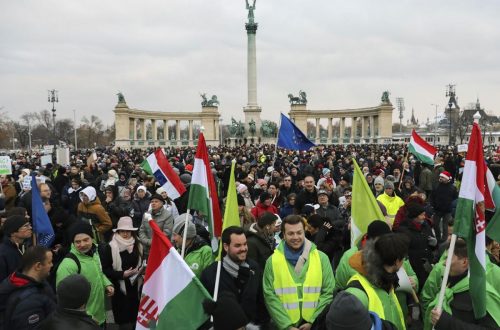Amnesty is an organisation with a vital role to play: the mobilisation of popular support for human rights. It is a task which, by and large, it has performed extremely well for its past 48 years.
Sometimes, its officers get things wrong.
Here are two examples.
First, Amnesty held a Guantanamo Bay Rally this weekend. The sole purpose of the rally should have been to oppose imprisonment without due process. It was, however, advertised as a ‘solidarity’ rally:
“To celebrate the new legal year we are holding a demonstration on behalf of the 229 Guantanamo detainees to show that much still needs to be done to free them from illegal detention. Please join us and hold one of the 229 placards to show your solidarity for the detainees.”
Faisal from The Spittoon makes the obvious but necessary point:
Amnesty UK is correct to say that all 229 Guantanamo detainees should be freed from “illegal detention” but does that mean Amnesty UK wants al-Qaeda terrorists amongst the 229, such as Khaled Shaikh Mohammed himself and also Mohammed al-Qahtani, Ramzi Binalshibh, Ammar al-Baluchi and Mustafa Ahmad al-Hawsawi, to be shown our our doubt-free solidarity?
I strongly support due process for all those accused of serious offences, and would oppose attempts to fiddle with our criminal justice system in a manner which undermines their right to a fair trial. I would not, however, describe my support for a system which protects fundamental process rights as “solidarity” with those accused of (say) murder or rape. My concern is not with specific people accused of particular offences, but with a system which meets the high standards required in a liberal democracy.
More to the point, as Faisal also observes, it is quite improper for Amnesty to partner with “CagePrisoners”, an organisation whose politics can be determined by the fact that they tried to host the Al Qaeda theoretician Awlaki at a recent fundraiser, until prevented from doing so by the local council.
I believe that they had initially invited Yvonne Ridley, who is a supporter of jihadism, to speak at this event: although she may have been replaced. Can anybody confirm whether or not she actually spoke?
The second example is, perhaps, less serious as it only involves an Amnesty press officer. It is nevertheless pretty depressing.
The CST Blog has a comment about a blog entry by Amnesty’s Neil Durkin, in which he makes light of the genuine nervousness of many Jews, when it emerged that Human Rights Watch’s Marc Garlasco was a collector of Nazi memorabilia: which he finds “cool”.
Durkin’s view, apparently, is that this concern is manufactured and false, and is an attempt to deflect attention from the conduct of the Israeli state. This is a version of the “Livingstone Formula”: that Jews rattle the chains of the Holocaust in order to get away with terrible crimes.
Mark Gardner explains:
Amnesty and Human Rights Watch have assumed the role of global guardians and promoters of human rights. Their cause is anchored upon the horrors of Nazism, as exemplified by the Holocaust; and their perceptions and definitions of human rights are a direct response to the depravity of those dreadful times. This brings a heavy moral responsibility that has been brought into harsh focus by their respective reactions to the Garlasco controversy.
We fully appreciate that it is in the nature of blog articles to be more chatty, humorous and casual than the sober statements and reports that are formally presented on behalf of organisations, and there is no suggestion that Durkin is anything other than an entirely genuine and committed human rights activist: but despite all that, it remains hard to overcome the disconcerting suspicion that Durkin’s playful sneers reflect Amnesty’s instinctive, basic reaction to the Garlasco controversy. It is a reaction that diminishes the right of Jews (including Israeli Jews) to be upset about antisemitism, Nazism and related topics, and can inadvertently facilitate the normalisation (and therefore growth) of these phenomena.
For the overwhelming majority of Jews, the imagery and memory of Nazism is simply repugnant: whether it is swastikas daubed on synagogues; the Iron Cross on Marc Garlasco’s sweatshirt; or jokes about Waffen-SS boots and David Irving books on an official Amnesty blog. The staff of Amnesty or HRW may be more concerned with Israel than they are with Jewish attitudes to Nazism, but they should be in no doubt that this Jewish reaction is not “scurillity”, but is visceral, authentic and laden with meaning: whether it occurs in Israel, Britain, Poland or wherever. Indeed, when the staff of such NGOs make fun of these concerns, or savage them as pro-Israel camouflage, they risk a betrayal of not only Jews, but also of the very principles upon which modern human rights are founded.
Human rights organisations understand very well the dangers of their work being co-opted by those whose concern for human rights is far from universal. At the same time, they need to strive create a broad coalition of those who – whatever else they disagree on – accept that there are certain rights that are inalienable, and which must be defended. It is a terribly important task.
It looks to me as if, from time to time, Amnesty allows its some of its officers and activists to align the organisation with a certain bien pensant liberal perspective. For the sake of human rights, it needs to keep a tighter rein on the manner in which its brand is employed.


